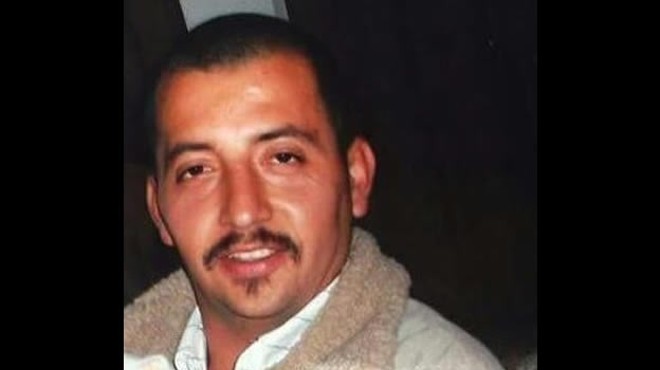Friday, September 11, 2015
ACLU responds to justified Pasco shooting, calls for change in state law
Law enforcement officers in Washington state should only be allowed to use deadly force when they fear for their lives or the lives of others and if there are no other options available to stop the threat, the ACLU of Washington says. But that's not how things work right now in Washington state.
The call for change comes after Franklin County Prosecutor Shawn Sant announced he would not file charges against the three Pasco cops who shot and killed Antonio Zambrano-Montes in February. Zambrano-Montes was throwing rocks at cars when officers were called. The officers shot at Zambrano-Montes 17 times after he threw rocks at them. The incident was caught on cell phone video and circulated online, sparking protests in the southeastern Washington town.
Under current state law, officers can only face criminal charges if there is probable cause to believe they acted with malice and without good faith. But proving that can be difficult. The 29-year-old Washington statute gives broader protection to officers than some other states because malice is extremely hard to prove.
"Officers have a responsibility to use deadly force only when absolutely necessary to protect themselves or others against serious bodily harm," ACLU of Washington executive director Kathleen Taylor said in a statement. "Whenever possible, they should always find ways to de-escalate encounters with civilians and use alternatives to deadly force."
Demonstrators have gathered at 10th Avenue and Lewis Street every month since Zambrano-Montes' death. They wave signs and chant: "It was just a rock," according to local news reports.
Gov. Jay Inslee has asked the state Attorney General's office to review Sant's decision not to charge Officers Adam Wright, Adrian Alaniz and Ryan Flanagan, who resigned in July.
"I want to ensure that people have confidence and trust in the decision that is
The FBI, the U.S. Attorney General's Office and the Department of Justice's Civil Rights Division will continue a review of local investigative material and any other relevant material to determine if the officers violated Federal law. The federal law makes it difficult for prosecutors to charge cops, as well, according to Jenny Durkan, a former U.S. Attorney in western Washington.
Prosecutors would have to prove beyond a reasonable doubt that officers "intended to deprive a person of his civil rights," she writes in an op-ed for the Washington Post. "Evidence that an officer feared for his life or acted according to training could defeat such a case. It is exceedingly difficult to prove such specific motivation."
The standard authorizing deadly force established by the United States Supreme Court is known as "objective reasonableness," and comes from two different cases: Tennessee v. Garner (1985) and Graham v. Conner (1989). In Conner, the court said reasonableness must be judged from the point of view of a "reasonable officer on the scene," and is determined by the severity of the crime, whether the suspect is resisting or trying to escape, and whether the suspect posed an immediate threat to the safety of officers or others.
“Police reform is a long-term effort that includes changing the culture of police departments and providing more training for officers in crisis intervention and de-escalation of confrontations so that use of force is not necessary," Taylor said in an email. "To bring greater accountability to police statewide, the most important action our legislature should take is to change to state law on use of force. 'Malice' should not be the standard for filing charges in police killings, as it ensures that charges will almost never be brought against an officer for killing a civilian.”
Tags: Antonio Zambrano-Montes , Pasco Police Department , Franklin County Prosecutor Shawn Sant , ACLU of Washington , News , Image


















